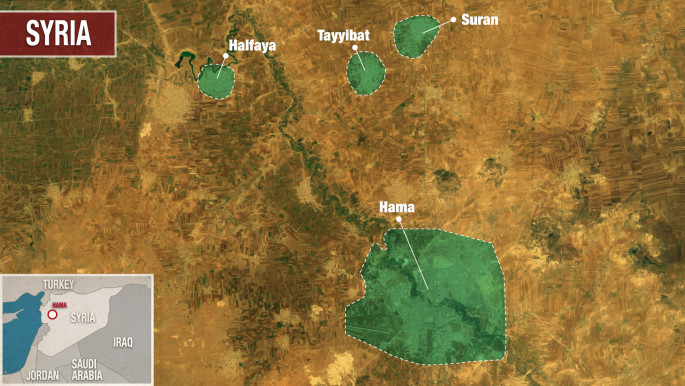Syria: Australia 'breaks refugee promises' amid new displacement wave
Only 6,678 of the 12,000 visas promised to Syrian refugees by Australian prime minister Tony Abbott have been delivered to date and of those holding a visa, 3,532 had arrived on Australian soil, reports have suggested, as the UN said hundreds of thousands of Syrians have been displaced in a new wave.
Austalia's "broken promises" have led to widespread criticism from six differrent humanitarian organisations in Australia, including Oxfam, Save the Children and Amnesty International.
Oxfam Australia’s Chief Executive Helen Szoke commented on the news, saying Australia’s efforts were lagging well behind other wealthy nations.
Szoke said: “Canada completed security checks and settled 25,000 people in just four months. We know millions of ordinary men, women and children have been forced to flee their homes in a desperate search for protection and are in dire need of assistance. We urgently need to help as many as we can.”
Plan International Australia Chief Executive Officer Ian Wishart added: “We’re in the midst of the largest refugee crisis in living memory.
“In Syria, half the pre-conflict population of 22 million Syrians have fled their homes in the past five years and more than 13.5 million people are in need of help.
“Australia needs to shoulder its fair share of the global responsibility for refugees. The children of Syria have suffered enough.”Australia has been the source of a great deal of international criticism in recent months over its handling of refugees on the small island of Nauru.
The UK newspaper, The Guardian, reported in August on around 2,000 incident reports from Australia's refugee detention centre in Nauru, showing allegations of assault, sexual assault and self-harm between 2013 and 2015.
The Minister for Immigration and Border Protection Peter Dutton responded to the report, saying some refugees had a "motivation to make a false complaint".
Dutton told Australia's 2GB Radio: "I have been made aware of some incidents that have reported false allegations of sexual assault, because in the end, people have paid money to people smugglers and they want to come to our country."
 |
|
Fighting intensified in the region just north of Hama, as various rebel groups attacked the Syrian army, who responded with heavy air strikes.
According to the Syrian Arab Red Crescent, refugees fled the towns of Halfaya, Taybat al Imam and Soran for the safety of Hama city centre, seeking shelter in mosques and schools.
The area is home to a large number of Alawite muslims, members of the same group as the Assad family, marking the area as of distinct strategic importance to the regime.
In a video, posted on Twitter on 3 September, a Free Army commander promised safe passage to Alawite citizens in the area, saying “We have no hostility to you but only to the regime.
“Anyone who helps us, or remains in their home, or raises a white flag will be safe and the safety of women and children and old men is assured.”
|
||
Numerous unverified videos have been posted to social media platforms by various rebel groups, including Jabhat al-Nusra, Jaish el-'Ezz, and the Free Syrian Army, supposedly showing fighting between rebel forces and the Syrian army.
|
|
||
| An example of an unverified video from Syrian rebel group "Jaish el-'Ezz", showing a rocket attack on a Syrian army position, near Hama |
The Syrian Arab Red Crescent told Reuters it had provided aid to around 35,000 people in Hama, in addition to a United Nations convoy of aid for 15,000 people.
The UN said it still needed to provide food and aid to another 6,500 families in Hama.





 Follow the Middle East's top stories in English at The New Arab on Google News
Follow the Middle East's top stories in English at The New Arab on Google News
![Israeli forces ordered bombed Gaza's Jabalia, ordering residents to leave [Getty]](/sites/default/files/styles/image_330x185/public/2176418030.jpeg?h=a5f2f23a&itok=_YGZaP1z)

